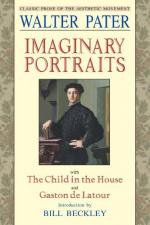|
This section contains 9,012 words (approx. 31 pages at 300 words per page) |

|
SOURCE: “‘Definite History and Dogmatic Interpretation’: The ‘White-nights’ of Pater's Marius the Epicurean,” in Criticism, Vol. 26, No. 2, Spring, 1984, pp. 171-91.
In the following essay, Monsman asserts that Pater's work contains many alternative possible meanings; its ambiguities, variations, and masks defy final meaning, he concludes.
“White-nights! so you might interpret its old Latin name. ‘The red rose came first,’ says a quaint German mystic, speaking of ‘the mystery of so-called white things,’ as being ‘ever an after-thought—the doubles, or seconds, of real things, and themselves but half-real, half-material’ … So, white-nights, I suppose, after something like the same analogy, should be nights not of quite blank forgetfulness, but passed in continuous dreaming, only half veiled by sleep. Certainly the place was, in such case, true to its fanciful name in this, that you might very well conceive, in face of it, that dreaming even in the daytime might come...
|
This section contains 9,012 words (approx. 31 pages at 300 words per page) |

|


